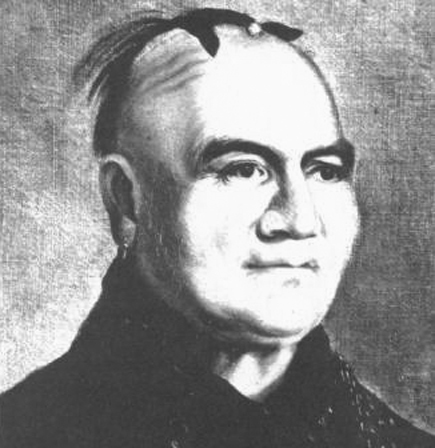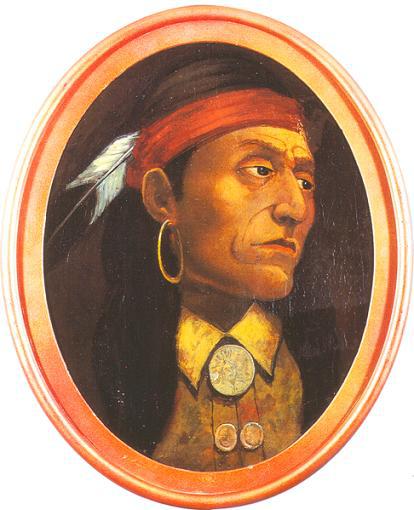Obwandiyag (aka Pontiac)
Chief: Obwandiyag (aka Pontiac)
Born: c.1720 in Great Lakes region, New France
Died: April 20, 1769 near Cahokia, Illinois Country
Nationality: Odawa (Ottawa)
Pontiac was a Ottawa war chief who led one of many Native American struggles against British military occupation, in particular in the Great Lakes region. He was one of the prominent leaders in the conflict referred as Pontiac’s War. Pontiac became an Ottawa war leader in 1747 when he allied himself with New France against the Huron leader Nicholas Orontony. He was an ally of the French during the French and Indian War (1754-1763) against the British. Dissatisfied with British policies after the French and Indian War, a loose confederacy of Native Americans was formed to push the British out of the continent.
On April 27, 1763, Pontiac held a council to urge a surprise attack on Fort Detroit. Pontiac’s war began on May 7, 1763, when Pontiac and 300 of his followers attempted to take Fort Detroit. Eventually, more than 900 warriors from a half dozen different tribes joined the siege. For about six months, Pontiac and his followers laid siege to the fort. On July 31, Pontiac and his supporters held off a British detachment at the Battle of Bloody Run, but were still unable to capture Fort Detroit. By the October of the same year, the siege was lifted and Pontiac and his followers withdrew to the Illinois Country. The influence of Pontiac declined after the failed Fort Detroit siege. Pontiac was assassinated on April 20, 1769, by a Peoria warrior whose name has not been preserved.
Resources about Pontiac:
Pontiac (Ottawa Leader). (n.d.) In Wikipedia. Retrieved March 1, 2016 from Wikipedia.
Pontiac's War. (n.d.) In Wikipedia. Retrieved March 1, 2016 from Wikipedia.
Middleton, Richard. Pontiac’s War: its causes, course, and consequences. New York, Routledge, 2007.
Peckham, Howard H. Pontiac and the Indian uprising. Detroit, Wayne State University Press, 1994.

Metacomet (aka King Philip)

Thayendanegea (aka Joseph Brant)

